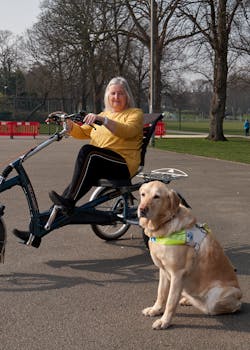
How Stock Photos Can Change the Way We See Old Age
Old age is something we all hope to experience eventually — yet negative stereotypes surrounding aging remain stubbornly hard to break down.
We see it frequently in the media, and especially in photography. Imagery depicting older people so often reduces them to stereotypes and reinforces negative ideas about old age.
More realistic — and more positive — images of old age can have an enormous impact in improving the way aging is talked about in the media, and how it's viewed in our society.
This goal is what inspired the UK-based charitable foundation Centre for Ageing Better to create an age-positive free stock photo library, with the hope of dramatically changing how old age is portrayed in stock photography. A selection of this photo library is now available free to download on Pexels.
Focusing on people aged 50+, Ageing Better seeks to improve employment, housing, health, and community for older people in England. Their photo library includes over 700 images of regular people aged 50+ doing regular things, offering an authentic alternative to the simplistic views of aging often on view in stock photography. Ageing Better has also released a free icon collection too, offering non-stereotypical signs and symbols featuring older people.
Through their free photo library, Ageing Better wants to make realistic imagery accessible for non-profits, publications, and anyone else focusing on the issues that older people face. Because getting older does come with unique challenges, and it's important that they're discussed.
"In the UK, one in four people will be over 65 in less than 20 years," says Yehia Nasr, Digital Officer at Ageing Better. "And the fact that many of us are living longer is a great achievement. But unless radical action is taken by government, business and others in society, millions of us risk missing out on enjoying those extra years."
We spoke more to Ageing Better about their mission behind creating this photo library, and why they think better photos of aging are so important for bringing about positive change.
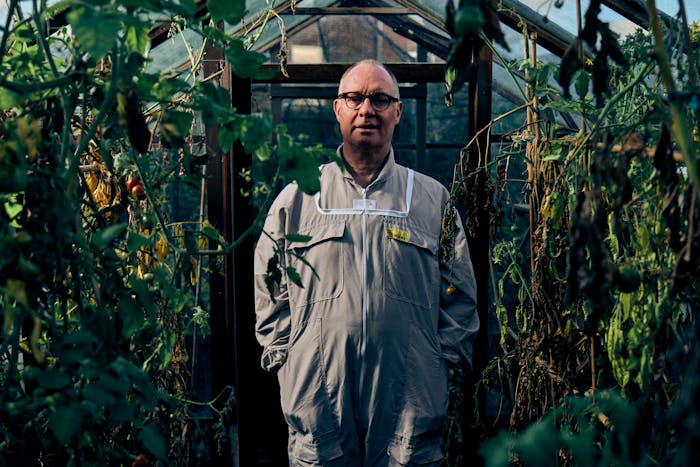
Photo by Centre for Ageing Better · View Photo
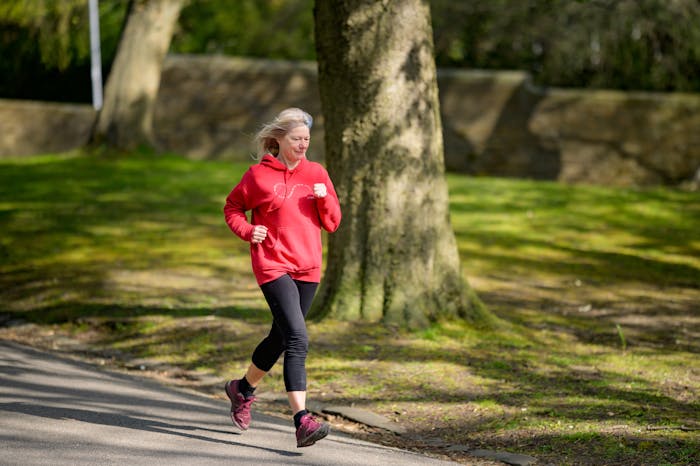
Photo by Centre for Ageing Better · View Photo
Pexels: Right now, what are some of the most important issues you're focusing on?
Ageing Better: The Covid-19 pandemic has meant that much of our work is more important than ever and that the issues we focus on are having larger implications for society and for people approaching later life.
While the lockdowns have been extremely challenging for all of us, our research has shown that the impact of the pandemic has fallen hardest on those who were already struggling to get by financially. Much of our work is focused on people who are likely to miss out on a good later life – these foundations for a good later life include financial security, good health, social connections, and having meaning and purpose in our lives.
We’ve been working on a large research project to understand more about the experiences of people in their 50s and 60s and on the factors that mean people are likely to miss out on a good later life.
A recent report of ours looked at the language used by the government, the media and social media, advertising and ageing-focused charities. It found that too often aging is associated with decline and ill-health. Older people are also commonly portrayed as frail, vulnerable and dependent.
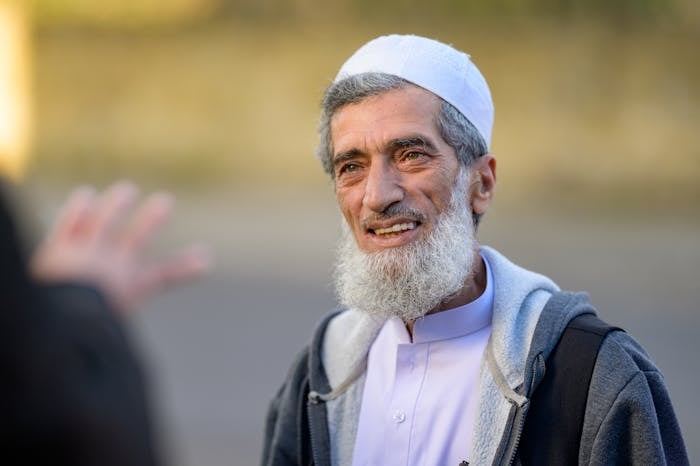
Photo by Centre for Ageing Better · View Photo
"There was a real dearth of good images available that depict people aged 50+. Too many image libraries serve up lazy stereotypes and fail to portray later life in a realistic or positive light."
Why did you decide to create an age-positive free image library?
The image library follows our work on ageism and attitudes to aging. One of the findings from a recent report was that organizations often use unrealistically positive or negative depictions of people in later life.
We recommended that in both words and pictures, the media should attempt to communicate a more diverse representation of what it means to be older without resorting to stereotype and caricature.
We were also aware from previous personal experience that there was a real dearth of good images available that depict people aged 50+. Too many image libraries serve up lazy stereotypes and fail to portray later life in a realistic or positive light.
We also know that many organizations, especially in the charity sector, have limited resources and aren’t able to commission photography for themselves or purchase images that avoid stereotypes. That’s why it was important for us that our age-positive image library offered a range of photos that avoided these poor depictions of later life and that the library was free and accessible by anyone.
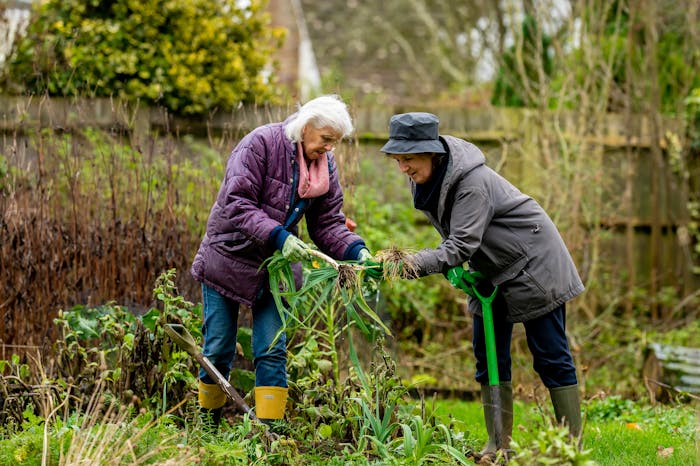
Photo by Centre for Ageing Better · View Photo
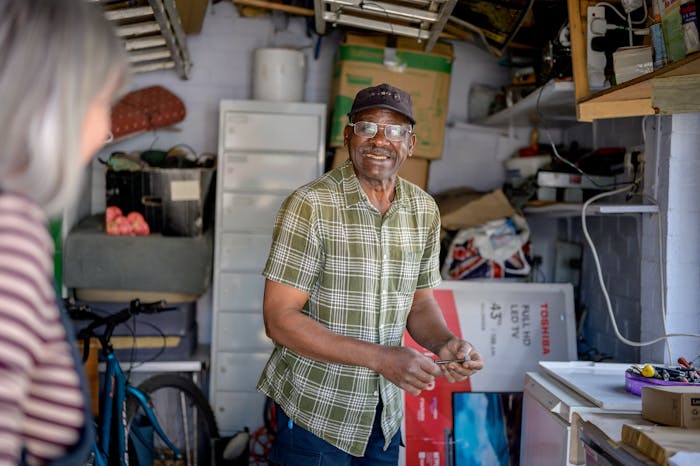
Photo by Centre for Ageing Better · View Photo
What does age-positivity mean to you?
When it comes to photography and visual depictions especially, "age-positive" doesn’t mean showing older people only in a euphoric state or positive situation.
Photographers and picture editors should avoid photographs that demean or belittle older people — but the other extreme of older people skydiving or running marathons isn’t very balanced either.
The most important thing is that the photos don’t use unrealistically positive or negative depictions of people in later life. Age-positivity means embracing the advantages of aging but it also means to not caricature later life: for example, images of wrinkly hands clasped together or affluent people on cruises.
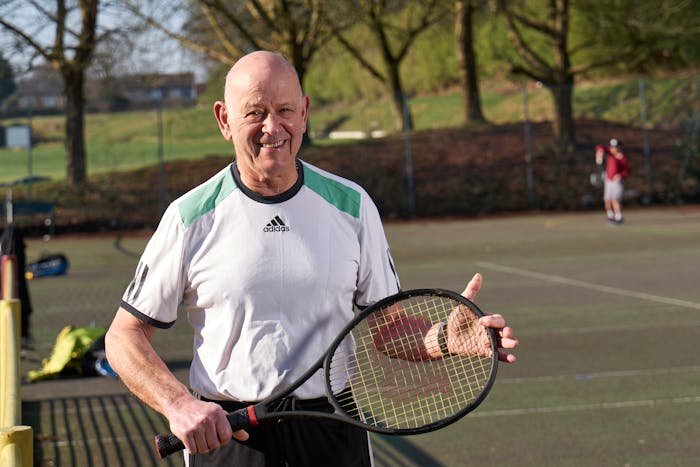
Photo by Centre for Ageing Better · View Photo
What was the process for shooting the photos like? How did you go about finding people to take part?
We approached four very talented photographers and put together a brief to populate the library, working to ensure we captured the diversity of people but also of settings. In a few limited cases the photographers contacted models, but the vast majority of people featured in the library volunteered to be photographed.
Many of these people were local to the photographers and were captured in their home or an environment that they felt represented them and their passions, rather than a photo studio for example. Most photos were taken during the pandemic, which obviously presented its challenges but which the photographers inevitably managed to overcome.
The image library would have been redundant if we didn’t avoid the stereotypes associated with older people and if the images weren’t age-positive, so that was our first consideration. Photographing people who weren’t models was a big factor in helping us achieve these realistic portrayals.
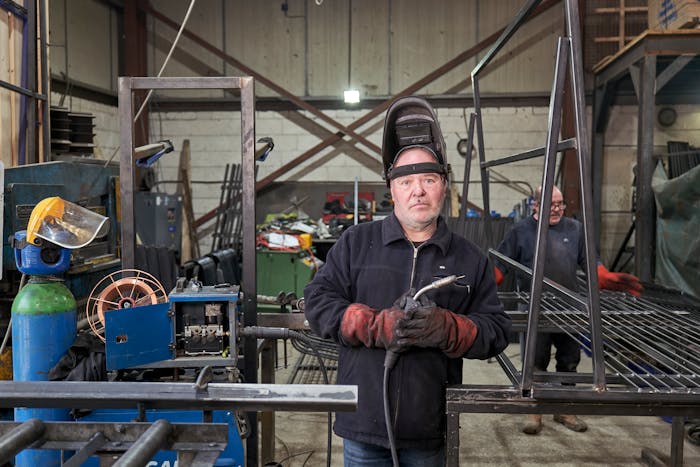
Photo by Centre for Ageing Better · View Photo
"Those who are approaching or are in later life aren’t a passive group who sit at home doing nothing while collecting their pensions, as some depictions suggest. One in three workers in the UK are aged 50 and over, but this is often overlooked."
Secondly, we wanted to maintain a good level of representation, for example depicting people who identified as LGBT+ or who were from minority ethnic backgrounds. Like all age groups, those aged 50 and over are not a homogenous group of people, so it was important for us to think about age, gender, ethnicity, religion, disability, sexual orientation, geography, and more.
We also wanted to highlight that older people contribute to society in a range of ways. Those who are approaching or are in later life aren’t a passive group who sit at home doing nothing while collecting their pensions, as some depictions suggest. They travel, socialize with younger generations, and work. One in three workers in the UK are aged 50 and over, but this is often overlooked.
As we add more images to the library, we’ll be taking even more conscious efforts to produce photos that present a representative view of the UK.
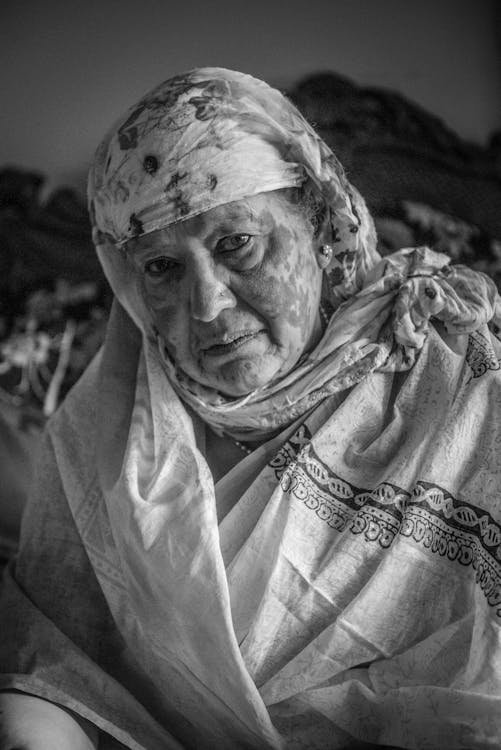
Photo by Centre for Ageing Better · View Photo
What do you hope to achieve through sharing the images with the Pexels community?
Working with Pexels is incredibly exciting for us because of the reach and size of the community. This presents a mutually beneficial opportunity: it means that users don’t have to struggle finding non-stereotypical images, but it also means that age-positive photos can become normalized and a part of our daily use.
We’re hoping that with the images becoming widely available, this will soon mark the end of harmful age-related stereotypes in our verbal and written language.
See the Ageing Better photo collection and download the photos here.
Written by Jill Evans · May 18
Editor of Pexels Stories and 35mm photographer



